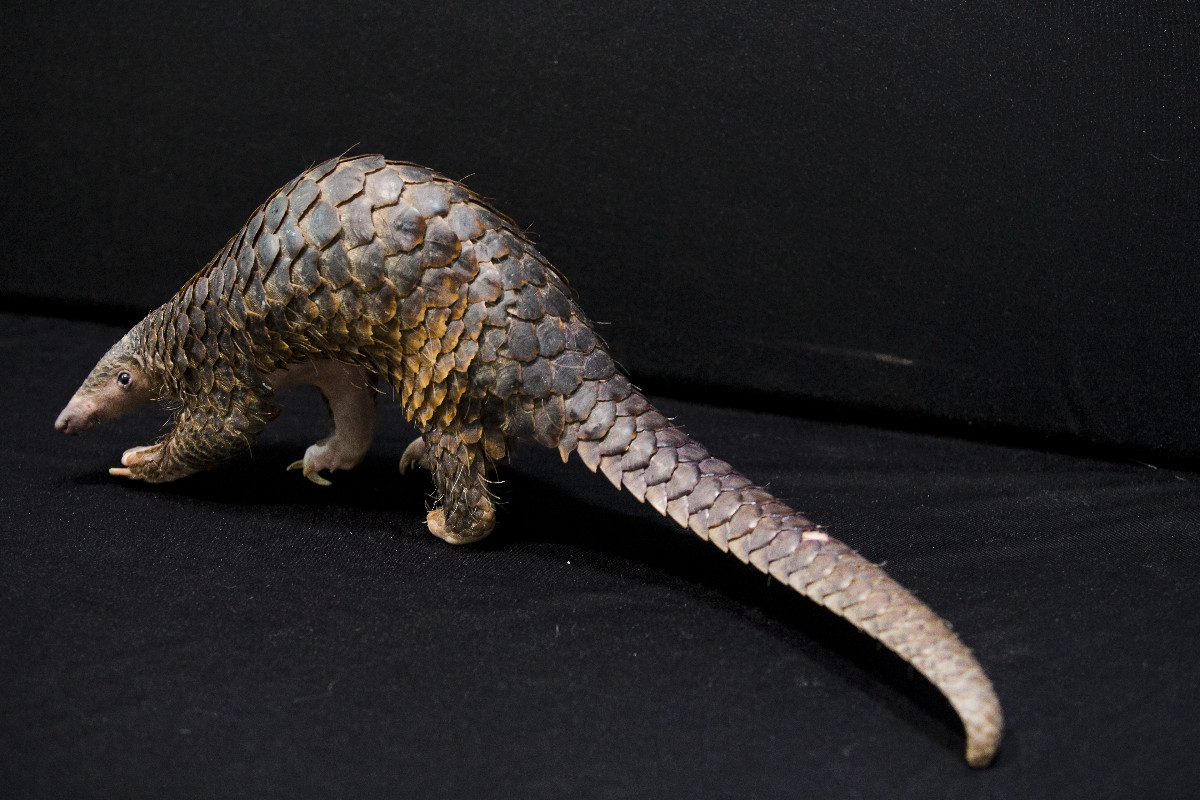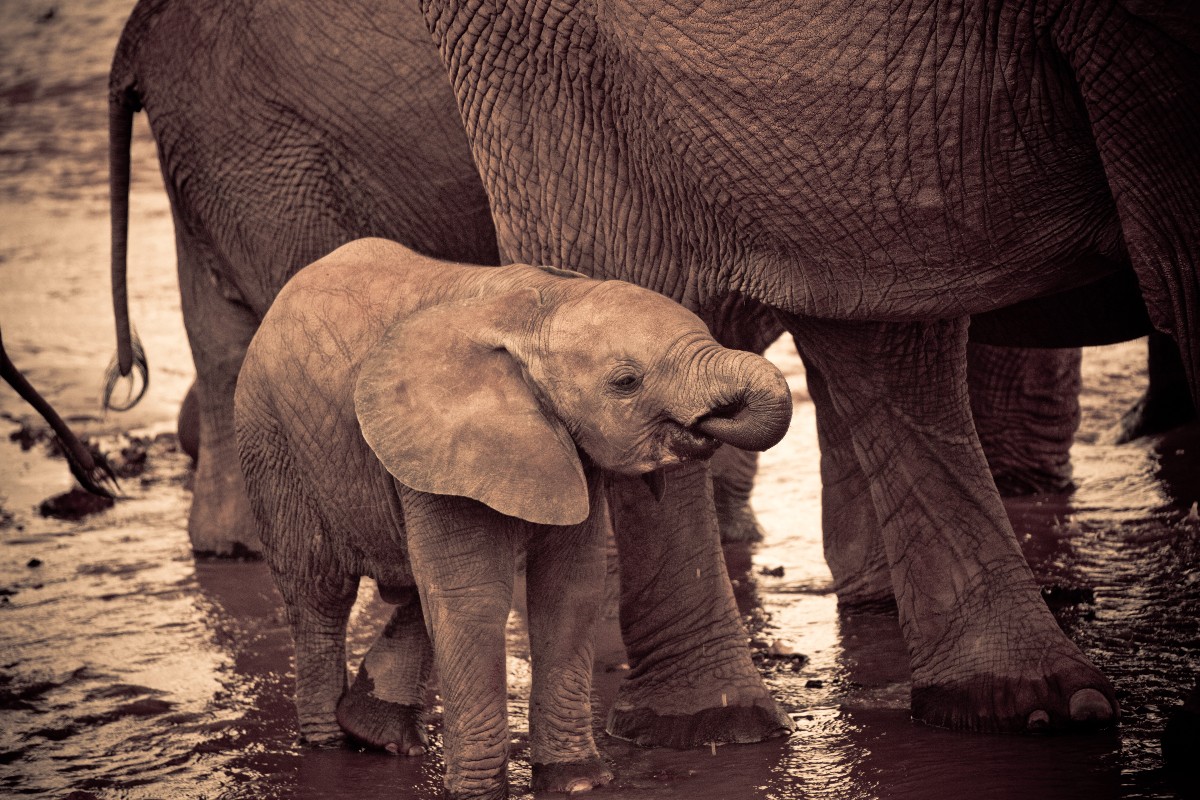Imagine a world where exotic animals such as elephants, tigers, rhinos and sharks no longer exist. Where they become mythical beings of the past only found in storybooks and encyclopedias. It’s a doleful thought and unfortunately one that has the potential to become reality. These animals are not dying out naturally – they are dying because of humans and our demand for their precious body parts.
Consumption of wildlife products in China has been a growing problem over the past decade, which is why organizations like WildAid and OgilvyOne have made it their mission to protect wildlife around the globe. As the world’s biggest consumer of endangered animal products, China represents a major battleground for the San Francisco-based WildAid as they attempt to stamp out demand for ivory, shark fin soup, manta gills, tiger parts and rhino horns.

WildAid has teamed up with an international communication agency OgilvyOne to create a very powerful pro-bono campaign called “Nail Biters, enlisting a cluster of Chinese celebrities of the likes of Li and Chen Kun (though Richard Branson makes an appearance too) to take a stand against the purchase of rhino horns, which are believed in China to have medicinal properties. Using a cross-platform strategy where famous and regular people can take a collective and personal stand to say no to the trade on both Weibo and WeChat, the ads feature stars biting their nails, with a message stating “rhino horn has nothing your own nails don’t have.” Which is true, by the way: rhino horn is made of keratin – the same protein that makes up our own nails and hair. Would you buy those for USD60,000 a pound? Didn’t think so.

Time is of the essence for WildAid; if the killing continues at the current pace, a growing number of species will end up endangered or even extinct. On average, 73 million sharks are killed each year for their precious fins, while over 33,000 elephants are slaughtered for their tusks. Tiger products are particularly sought after in China, poached for their bones, claws, teeth and pelts. With fewer than 3,200 tigers remaining in the wild today, this majestic species is at incredibly high risk of becoming extinct if the killing does not end now.
WildAid’s approach to saving these threatened creatures is unorthodox. While other organizations seek to protect animals through methods like conservation, WildAid sets itself apart with its simple mission statement: “When the buying stops, killing can too.” It’s the idea that eliminating demand for wildlife products is key to stopping poachers profiting from animal slaughter. WildAid focuses on media campaigns that raise awareness about the need to end the illegal wildlife trade that’s estimated to be worth US$10 billion per year.
Shark fins have been the organization’s greatest success story so far, with consumption of shark fin soup down 50 to 70 percent since 2011. Over the past two years alone, Guangzhou shark fin vendors reported an 82 percent decrease in shark fin sales.
WildAid’s China Chief Representative May Mei keeps positive: “Our work here is always exciting, extremely rewarding and constantly evolving. I’m very proud of what we’ve accomplished so far. We’ve seen notable results on reducing demand for shark fins already, and the tremendous amount of opportunities keeps me excited and optimistic that we can do the same for other wildlife.”
Although they are heading in the right direction, it will be an uphill battle to completely eradicate the world’s appetite for animal products. That’s why WildAid has enlisted some of the world’s biggest celebrity names to assist in their campaigns. Leonardo DiCaprio, Prince William, Li Bingbing, Richard Branson, Yao Ming and David Beckham are just a few of the stars who have participated in their campaigns. Most dedicated to the cause is Jackie Chan, who has worked with WildAid for over a decade.
WildAid uses its celebrity ambassadors to create media awareness campaigns which include TV ads, billboards and print ads in public areas. Despite the challenges they face in changing attitudes in China, WildAid have received widespread support for their campaigns. “We receive a tremendous amount of support from our media and government partners in China,” Mei says. “All of our media space is donated by very generous media partners who have provided pro bono support worth nearly US$ 200 million in 2014 alone. Our staff in China are almost exclusively Chinese nationals. We also have the support of both major international and Chinese celebrities.”
So what can you do? It’s quite simple, stop buying endangered wildlife products and ask your friends and family to do the same. Of course, a donation can go a long way as well.
> Learn more about WildAid and their cause by visiting www.wildaid.org.
> Follow the campaign on Weibo with the hashtag #Eat your nails, not rhino horn# (#啃指甲救犀牛#),” or on WeChat with a specially created H5 which allows users to copy the celebrities and create their own ‘nail-biting’ poster with selfies, which they can post with an invitation for friends to participate.


















